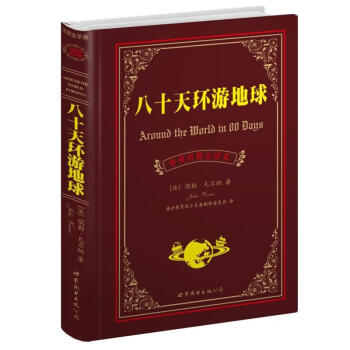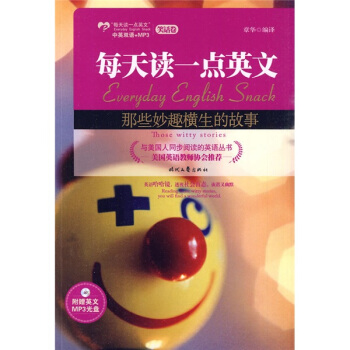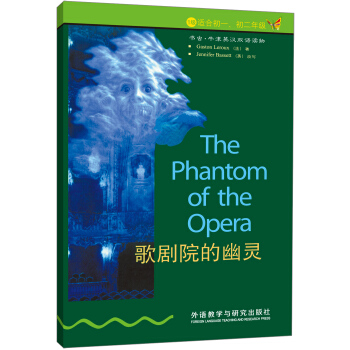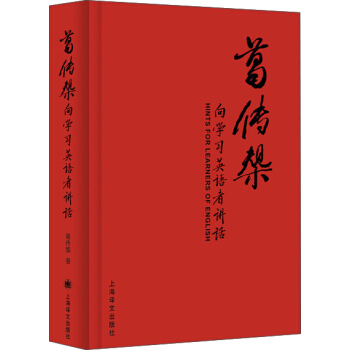

具体描述
编辑推荐
适读人群 :在校中学生、大学生或英语爱好者葛传椝先生通过和读者们分享自己在英语学习过程中总结的各种困难,帮助他们找到更好的学习方法。所涉及的问题都是大家在日常的学习生活中经常会遇到的,语言朴实恳切,能使读者受益匪浅。复旦大学英文系朱绩崧博士作序,倾情推荐。
内容简介
《葛传椝向学习英语者讲话》选集是从葛传椝先生的三本选集--《葛传椝英文集(ManandStudent)》、《英文刍言(AWordtotheWise)》和《英文作文教本(ATextbookofEnglishComposition)》--中选出论述学习英语的三十七篇文章编成的。每篇揭示一个或两个问题,大都是英语语法书和英语修辞学书所不曾讲到的。内容谈到什么读物是初学者需要读的和什么是不宜读的;怎样才能读得精细;说、读和写的关系;以及拘泥语法条条,一概类推所造成的错误等问题。作者简介
葛传椝(1906-1992),复旦大学教授,上世纪50年代复旦大学英语语言文学系“三巨头”之一。幼时家境清贫,初中辍学后,自学英语。1921年考入上海电报传习所,翌年至崇明县立中学任教。1925年起任上海商务印书馆英语编辑,直至八一三中日淞沪战争爆发。任职其间发现很多英语单词的中文词意义相同,而英语的习惯表述却差异很大,即以6年时间编写《英语习惯用法词典》,于1942年出版,是为中国人编写的第一部英语惯用法词典。在查阅《简明牛津词典》(TheConciseOxfordDictionaryofCurrentEnglish)时,发现其中不少错误,即致信词典主编英人福勒(H。W。Fowler),为福勒所钦佩。之后,为中华书局、竞文书局编写英语读本。1945年起任教于上海光华大学。中华人民共和国成立后,接上级教育主管单位命令,1951年光华大学与大夏大学合并成立华东师范大学,继续在此执教至1954年,继而调往复旦大学外文系任教,直至1986年退休。1992年7月在上海逝世。著有久负盛名的《英汉四用词典》,《新英汉词典》(主要编纂者之一),以及《英语惯用法词典》、《英语写作》,被学界誉为一代宗师、英语惯用法,为中国英语教育界先驱之一。精彩书评
★一册虽薄,讲的却是中国人学习英语的根本法度,配合葛先生另外两本名著《英语惯用法词典》和《英语写作》,如能不厌枯燥,熟读化用,一定远胜过你去新某方、新某道之流烧钱听段子,甚至远远胜过你去读多为大学里的所谓英文系、翻译系——复旦大学朱绩崧博士(@文冤阁大学士)
目录
Contents1. What to Read
2. Reading Aloud
3. Can You Read Englishmen’s English?
4. What kind of English?
5. The Question of Background
6. Books on English and Books in English
7. An Easy Sentence to Study
8. What Does “Would of Come” Mean?
9. “More Presently”
10. Double Negatives in Current English
11. About the Study of Grammar
12. Knowing Just Enough Grammar to Go Wrong
13. The Language Is the Main Thing
14. Logic and Usage
15. Something Unnatural
16. A Good Knowledge of Bad English
17. Reading Dictionaries
18. Make Your Own Dictionary
19. Make Another Dictionary of Your Own
20. More about What to Read
21. Reading to Learn the Art of Expression
22. Learning English Conversation by Imitaion
23. Imitation, Good and Bad
24. Tongue and Pen
25. Simply Didn’t Know
26. So Many Points
27. How to Say It
28. A “Foolish” Principle of Composition
29. An Aid to Composition
30. Some Mistakes to Consider
31. Some More Mistakes to Consider
32. Better Short Than Long
33. Something More Important Than Enlarging One’s Vocabulary
34. Make the Word Your Own
35. A Warning Regarding the Use of Words
36. The Word
37. What “Literary English” Means
汉译文
精彩书摘
Do you ever read aloud? The chances arel that you do not now read aloud.You used to read aloud when you were a small child.But you ceased to read aloud at fourteen or fifteen.If I'm not mistaken, among certain boys and girls late in their teens2 reading aloud is now a lost art'3. You may protest, "What4 if I were to read aloud, when I do not read aloud and yet understand?" Well, much would come of5 reading aloud.Reading aloud helps you to learn by heart, and learning by heart is essential to all who aim at writing well.Reading aloud helps you to cultivate good pronunciation and good intonation, and good pronunciation and good intonation are essential to all language learners.Reading aloud helps you to discover certain beauties oflanguage that you may fail to see in your silent reading.Unless you read aloud, you cannot learn to write naturally or to appreciate literature. ……前言/序言
康南海诗云:“译才并世数严林,百部虞初救世心。”洎今视之,几道、琴南蔚为两宗,而余独推几道为真救世者,盖其出文章之学,入经济之功也。夫师夷者,师其道以自强。文之不明,其道安载?徒事华辞,何裨于时?然汉英两系,隔阻海山,交通声气,近世始然。窃谓语言者,质论之,分别品类,拟象万端也。凡人物事理、静躁实虚,莫不形诸声文,纳诸规式。民族既殊,类式迥别。其常也,我正而彼侧;其极也,彼亡而我存。吾邦之人多昧乎英文,固习之不同,非关愚智。然则强为拟对,何异将我之权衡,作彼之规矩乎?是故英文之道,讵可外索而他求耶?
昔余负笈龙门书院,初闻练川葛公之盛名,访其著作不得,聊窥豹于《新英汉词典》。旋得《英语写作》于福州路坊肆间,三年竟之。辛巳,同窗阜宁梁君赠余《英语惯用法词典》,不期月而毕,如梦久忽觉,尽弃曩之所学。因知葛公自成法度,澄湛朴素,显奥表里,在在见极。非霞客孤旅,历折逆,攀巉岩,念道途之多艰,接引后来,不能为也。微此遗训,余其懵然蒙昧句读间,自诩得之而去真愈远矣!
戊午兴化,重启国门,西向而学者亿兆。然于英文一科,或不求甚解,逞意为谈,斯大谬也!或困囿一隅,唯玄是务,斯大惑也!或妄传淫巧,贻误初学,斯大恶也!
当此,则译文社重梓葛公文集,匡弊害,扶风气,前承南海嘱望,复振侯官烈徽,必有造于吾邦之日新也。
乙未四月广陵后学朱绩崧顿首谨序
用户评价
这本书最让我欣赏的一点是其极强的跨文化视野。它不仅仅是关于如何掌握英语语法或词汇,更是关于如何通过这门语言,去观察和理解一个不同的世界观。作者在介绍某些惯用语或表达方式时,总会追溯其历史渊源或文化背景,这使得学习过程不再是机械的记忆,而是一种文化探险。我特别喜欢其中关于“幽默感在不同语言中的转译难度”的探讨,这让我意识到,语言的最高境界,或许在于理解其背后的价值体系。全书的论述逻辑缜密,论据详实,但行文却保持着一种令人愉悦的流畅性,没有丝毫的学术腔调。它成功地将严肃的语言学观察,包装成了一次引人入胜的智力之旅,让我在享受阅读的同时,对英语这门工具的认识达到了一个新的高度,感觉自己对世界和他人的理解也因此变得更加开阔了。
评分这部作品的深度实在令人惊叹,它不像市面上那些泛泛而谈的语言学习指南,反而像是一面映照学习者内心迷茫的镜子。作者似乎完全洞悉了英语学习者在跨越某个瓶颈时所感受到的那种无力和挫败感。我尤其欣赏其中关于“思维转换”的论述,它没有陷入到枯燥的语法规则讲解中,而是巧妙地引导读者去理解英语语言背后的文化逻辑和表达习惯。阅读过程中,我感觉自己不是在被动地吸收知识点,而是在参与一场与母语者思维模式的深度对话。书中对不同语境下词汇细微差别的剖析,极其精辟,比如对“subtle”和“nuanced”的区分,放在具体的例句中去理解,一下子就打通了我过去一直模糊不清的概念。这种由内而外的重塑学习路径的方法,远比死记硬背要有效得多。它要求读者不仅要“学会说”,更要“学会想”,这才是真正实现流利掌握一门外语的关键所在,让人读完后有一种醍醐灌顶的畅快感,仿佛找到了通往更高层次语言理解的密匙。
评分我必须承认,这本书的阅读体验是相当“反直觉”的,它颠覆了我多年以来对传统英语教学的认知。它的语言风格非常个人化,带着一种沉稳而又充满洞察力的叙事节奏,读起来更像是在聆听一位经验丰富的前辈在炉边分享他自己摸索出来的“生存法则”,而非一本刻意为之的教材。最让我印象深刻的是关于“输入与输出平衡”的章节,作者用了一种非常生活化的比喻,将大量的阅读和听力比作“土壤的涵养”,而口语和写作则是“开花结果”,强调了耐心和基础积累的重要性。在很多关于发音和语调的讨论中,它没有给出标准的美音或英音模板,而是鼓励学习者找到最适合自己的“声音”,这种去魅化和去工具化的处理方式,极大地减轻了我的焦虑感。这本书不急于提供速成秘籍,而是致力于培养一种健康、可持续的学习心态,其背后蕴含的教育哲学,值得所有长期处于学习平台期的学习者深思。
评分我曾经尝试过许多强调“效率”和“技巧”的学习书籍,但往往读完之后,很快就会忘记,因为它们缺少一种持久的内在驱动力。然而,这本书的独特之处在于,它更多地聚焦于学习者的“内在状态管理”。比如,作者对“完美主义陷阱”的剖析,简直是说出了我的心声——我们总是在担心犯错,以至于根本不敢迈出那一步。书中建议的学习策略,更多的是关于如何“拥抱不完美”,如何将每一次错误视为一个可供分析的数据点,而不是失败的标志。这种心态上的转变,比掌握任何新的动词时态都来得更加宝贵。书中的文字充满了力量和韧性,它没有贩卖虚假的希望,而是提供了一条脚踏实地的、需要毅力才能走完的道路,让人在阅读中不断积蓄力量,重新审视自己对“掌握”这个词的定义。
评分这本书的结构编排非常新颖,它巧妙地避开了按部就班的章节划分,更像是若干篇精心打磨的随笔集合,每一篇都可以独立成章,但串联起来又形成了一个完整的知识体系。我对其中关于“影子跟读法”的细致分析尤为推崇,它不仅仅是教你怎么模仿,而是深入探讨了模仿过程中如何捕捉到语流中的节奏感和重音变化,这对于提升听力理解的“沉浸感”至关重要。作者在讲解时,总能精准地预判到学习者会在哪里卡住,并提前给出富有建设性的建议。举例来说,对于那些害怕开口的群体,书中提供的策略不是强迫自己大声朗读,而是先进行无声的“口型肌肉训练”,这种由内而外的渐进式介入,显得非常体贴和科学。整本书读下来,给人一种被理解、被鼓励的感觉,它不是冷冰冰的理论堆砌,而是充满了人文关怀的语言学习指南。
评分好书好书好书好书好书好书
评分为什么爱在京东买书呢 因为物美价廉快递无敌态度好 退换无忧
评分大师之作 读读有收获 市面资料很多 还是经典最好看
评分很棒啊,物流超快,服务到位。商品本身也很好,没什么瑕疵。下次买东西还在京东买。每次书啊,电子产品啊啥的,都是这儿买的。基本上没啥问题的。就是有时候价格变动有些大。每次搞活动促销事实上把价格体系搞乱了,希望下次能够一直平价销售。
评分非常不错的书值得用心看
评分活动时购买,性价比较高,东西不错,送货又快,非常满意中。
评分最后,感谢所有买书的前面的书友,特别是那些发照片的,有特别是那些发照片能够让我读到书的内容的书友,谢谢你们,在我苦心挑书的过程中,找到了适合而且满意的书!总之,让我读读书上写的,拜托啦!!!
评分这本书真的不错大家可以买来看看。不错哦
评分很好的英语学习书籍 适合初学者
相关图书
本站所有内容均为互联网搜索引擎提供的公开搜索信息,本站不存储任何数据与内容,任何内容与数据均与本站无关,如有需要请联系相关搜索引擎包括但不限于百度,google,bing,sogou 等
© 2026 book.idnshop.cc All Rights Reserved. 静思书屋 版权所有



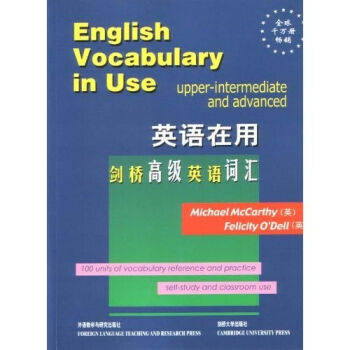
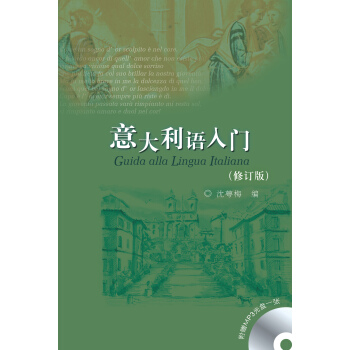
![学生实用英语高考必备(第14版 2014年全新修订版) [Students' Practical Essentials of Nmet] pdf epub mobi 电子书 下载](https://pic.tinynews.org/11464307/53868293N90b5109e.jpg)

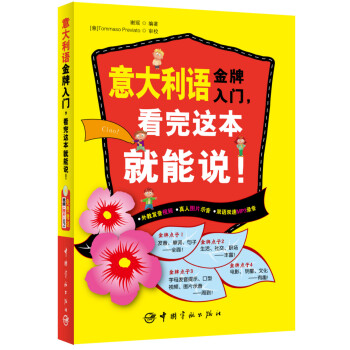
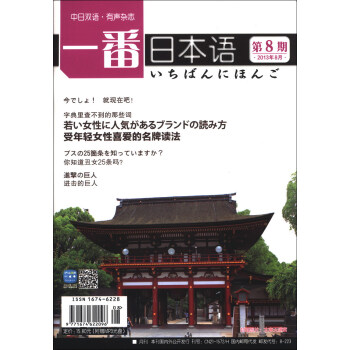
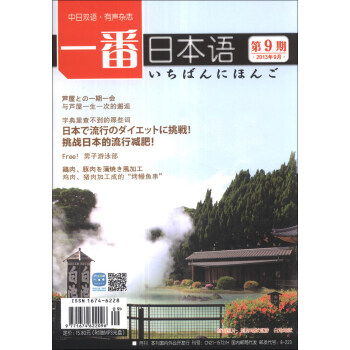
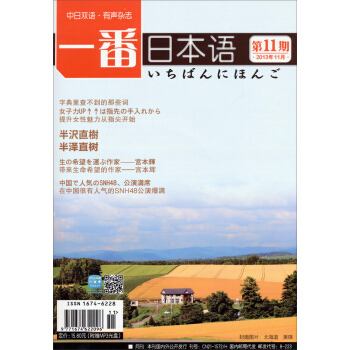

![与孤独为伍(伟大的思想)(英汉双语版) [Man Alone with Himself] pdf epub mobi 电子书 下载](https://pic.tinynews.org/10085105/e20c8083-a909-44f1-bbfd-79e74d2616a2.jpg)
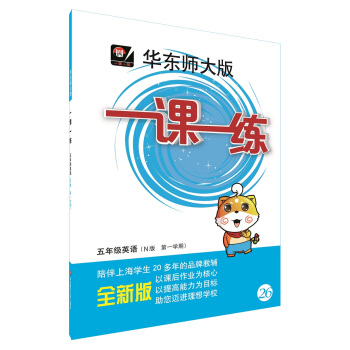

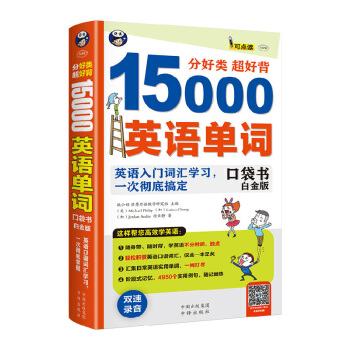
![实战口译(教学参考) [Field Interpreting] pdf epub mobi 电子书 下载](https://pic.tinynews.org/10034151/5754d291Nb4f162ea.jpg)
